Over the many years that the Queen's Economics Department and its predecessor, the Department of Political and Economic Science, have been in existence, there have been many interesting people associated with them. On these pages, we pay tribute to some of these people.
Stephan F. Kaliski (1928-2018)
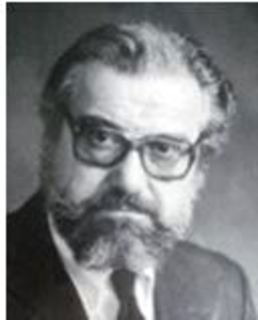 Steve escaped Poland in 1939 with his brother and parents, via Vladivostok and Japan. He grew up in Vancouver and did his undergraduate work atUBC. He then went to Toronto for his master’s work and did his PhD at Cambridge University in England. He then came back to Canada and taught at Carleton University in the 1960s, serving a time as head of the Economics Department there. Around 1970, he moved to the Economics Department at Queen’s where he spent the rest of his career. He served as Editor of the Canadian Journal of Economics (1977-79) and as President of the Canadian Economics Association (1986-87). His break-out article was on the Phillips Curve and he concentrated his work on labour market issues throughout his career. He had an encyclopedic knowledge of such issues (which was particularly valuable before the era of internet search engines), he was a demanding critic of the highest standard (his high standards helped build the QED), and he was always a self-effacing gentleman with a quiet wit.
Steve escaped Poland in 1939 with his brother and parents, via Vladivostok and Japan. He grew up in Vancouver and did his undergraduate work atUBC. He then went to Toronto for his master’s work and did his PhD at Cambridge University in England. He then came back to Canada and taught at Carleton University in the 1960s, serving a time as head of the Economics Department there. Around 1970, he moved to the Economics Department at Queen’s where he spent the rest of his career. He served as Editor of the Canadian Journal of Economics (1977-79) and as President of the Canadian Economics Association (1986-87). His break-out article was on the Phillips Curve and he concentrated his work on labour market issues throughout his career. He had an encyclopedic knowledge of such issues (which was particularly valuable before the era of internet search engines), he was a demanding critic of the highest standard (his high standards helped build the QED), and he was always a self-effacing gentleman with a quiet wit.
Frank David Lewis (1947-2018)
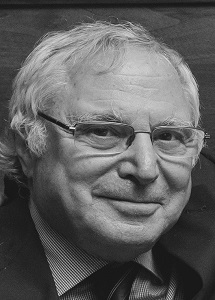 To many in the Economics Department at Queen’s, and within the community of economic historians, Frank was our teacher, colleague, co-author, friend, and mentor. He will be missed.
To many in the Economics Department at Queen’s, and within the community of economic historians, Frank was our teacher, colleague, co-author, friend, and mentor. He will be missed.
Frank Lewis was born in 1947 in Montreal where he grew up. He received an Honours B.A. from McGill University in 1967 and then studied at the University of Rochester, obtaining his M.A. in 1970 and his Ph.D. in 1976 under the supervision of Stanley Engerman . He was initially appointed to Queen's in 1972 and was promoted to Associate Professor in 1980 and to Professor in 1987. Professor Lewis was a visiting professor at UBC (1977-8), the Hebrew University of Jerusalem (1994, 2004) and the University of Colorado (2011). He was also a Research Associate at the National Bureau of Economic Research (1978-80, 2012) and the Australian National University (1987).
During his forty four years at Queen's, Professor Lewis distinguished himself as an internationally renowned researcher on many aspects of the economic history of Canada and the U.S. He was Head of the economic department in 1997-8 and 2001-3 and has served on numerous committees at all levels. He has been an outstanding teacher and mentor and, in 2015, he received the Queen’s economics undergraduate teaching award. In 2016 Frank received the Jonathan Hughes Prize for excellence in the teaching of Economic History by the Economic History Association. The nomination for this international prize came from Frank’s students and colleagues at Queen’s and other Canadian and international universities. It is one of the most distinguished awards granted by the Association.
Professor Lewis's research contributions are widely cited and he received several prestigious awards for his work. He won the Harry Johnson Prize in 1999 for the best paper in the Canadian Journal of Economics, “Property Rights, Competition and Depletion in the Eighteenth-Century”. He received the Library Company of Philadelphia Prize for 2001 for the best article in early American economic history, “Trade, Consumption, and the Native Economy: Lessons from York Factory, Hudson Bay,” Journal of Economic History, vol. 61 (2001), pp. 1037-64 (with Ann Carlos). He was also a finalist for the Alice Hanson Jones Prize (best book in North American Economic History in 2010-11) for Commerce by a Frozen Sea: Native Americans and the European Fur Trade, with Ann Carlos.
Dan Usher (1934-2017)
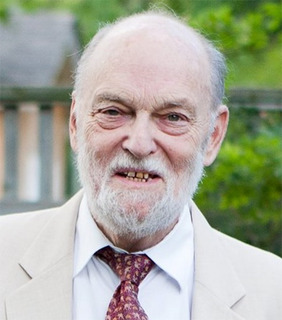 Dan received his BA from McGill in 1955 and his MA and PhD from the University of Chicago in 1958 and 1960, respectively. After working for the United Nations in Bangkok and holding academic positions at Manchester, Oxford and Columbia, Dan was hired as an associate professor at Queen’s in 1967. He was employed at Queen’s until his retirement and continued to work in the QED thereafter. Dan’s main research was in the broad area of Public Economics but he took a strong interest in a wide variety of subjects and published in several fields including law and economics, political economy and economic policy. Dan received many accolades during his career, including fellowships at the Hoover Institute and UBC, and he become a Fellow of the Royal Society of Canada in 1982. While at the QED, he taught courses in public economics, microeconomics and law and economics at all levels and supervised numerous graduate students, especially at the MA level.
Dan received his BA from McGill in 1955 and his MA and PhD from the University of Chicago in 1958 and 1960, respectively. After working for the United Nations in Bangkok and holding academic positions at Manchester, Oxford and Columbia, Dan was hired as an associate professor at Queen’s in 1967. He was employed at Queen’s until his retirement and continued to work in the QED thereafter. Dan’s main research was in the broad area of Public Economics but he took a strong interest in a wide variety of subjects and published in several fields including law and economics, political economy and economic policy. Dan received many accolades during his career, including fellowships at the Hoover Institute and UBC, and he become a Fellow of the Royal Society of Canada in 1982. While at the QED, he taught courses in public economics, microeconomics and law and economics at all levels and supervised numerous graduate students, especially at the MA level.
Alan G. Green (1932-2010)
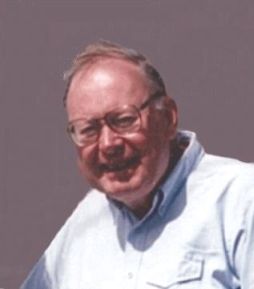 The following is drawn from a Eulogy to Alan G. Green delivered at St. George's Cathedral, Kingston, November 6, 2010 by Frank Lewis.
The following is drawn from a Eulogy to Alan G. Green delivered at St. George's Cathedral, Kingston, November 6, 2010 by Frank Lewis.
Alan was born and raised in Hamilton, Ontario. He did his undergraduate work at Queen's University, graduating in 1957 as the medalist in Economics. He subsequently obtained a PhD from Harvard under the supervision of Simon Kuznets. He also spent a sabbatical there. Alan joined the Economics Department at Queen's in 1963 and remained there throughout his professional life. He retired in 1997, but, as a Professor Emeritus, remained active in teaching and research until his death.
Alan's research was driven by the need to understand the development of the Canadian economy. His work on the Great Depression and his estimates of regional income inequalities across Canada during the years after Confederation are still standard references. Early in his career, Alan turned his attention to immigration. He became a major figure, perhaps more accurately, the major figure in the economic history of immigration to Canada and Canadian immigration policy. For many years, both the Federal and Ontario governments sought his advice on questions of immigration policy implementation and reform. Alan continued to act in an advisory role for governments even after he was unable to travel to Toronto or Ottawa.
Research for Alan was often a family affair. Much of his early work was co-authored with his wife, Ann, who is an economist in her own right. Later, Alan worked with his son, David, who is a professor at the University of British Columbia. David and Alan, with research support from Ann, have written important papers on immigration, one of which received the 1995 Harry Johnson Prize for the best article to appear in the Canadian Journal of Economics that year.
Alan's contributions to the economic history community went far beyond his publications. For many economic historians across Canada, Alan will be remembered as a mentor, friend, and cheerleader. Since the 1960s, Canadian economic historians have assembled every eighteen months to communicate their ideas and encourage the work of young scholars. In the 1970s, these conferences were at serious risk of being discontinued. Alan, almost single-handedly, prevented that from happening by ensuring there was a venue, someone (often Alan himself) to put together a program, and adequate funding. Over the last 50 years, no-one has done more to foster and guide the study of economic history in Canada.
Years later I was in charge of getting the funding for our conference, and I put together a proposal to the Social Sciences and Humanities Research Council. I followed their guidelines and it was a lot of work. The proposal ran something like 150 pages. I asked Alan how he got the funding. He said - "with a phone call." Admittedly it was a different time, but Alan was on good terms with someone at the Canada Council, and had persuaded them - Alan was remarkably persuasive when came to good causes - he persuaded them that our group was worth supporting. So every 18 months he phoned them up and funding would appear.
In the late 1980s, David Smith then Principal of Queen's asked Alan to chair a new working group that was given the name: "Library of the Twenty-First Century." The working group was to start the process that would lead to a new central library at Queen's. And fundamental to that process was acquiring the funding. Alan, and Ann as well, worked closely with representatives of the Stauffer Foundation, which ultimately provided the substantial funding that allowed the project to go ahead. Later Alan chaired the building committee, which selected the architect and project manager, and in addition to dealing with so many aspects of the construction, guided it through the difficult political process.
The Stauffer Library was completed in 1994, on time and under project. And the budget was met not by cutting corners. To the contrary, aspects of the building, particularly the exterior detailing, were built to standards that exceeded the original plan. The building has won architectural awards and looks as fresh today as it did when it first opened. Students at Queen's when asked about various aspects of the university always rate Stauffer Library as their favourite space on campus, and one has just to walk in the building to know why.
There is a plaque in the Fireside Reading Room of the Stauffer Library that reads: "In recognition of Alan G. Green, Guiding spirit, visionary and indefatigable champion of the Library of the 21st Century. His leadership inspired the many people who contributed their time, energy and talent to the building of the Joseph S. Stauffer Library."
Paul Wiens, at his retirement as chief librarian earlier this year, sent a note to Alan that says in part: "Your support, political acumen, and enthusiasm made it possible for us to build what was to become the highest ranked academic library in the country - and to have a wonderful time doing it. I will never forget the great meetings we had filled with laughter and optimism."
From the early 1970s to 1986 Alan Green was chairman of the Queen's Pension Board. That period included most importantly the time, the early 1970s, when the terms of the current pension plan were developed. Basically, there were two approaches to pension plans: defined benefit, where retirees were paid a pension which was some fraction of their earnings during their years before retirement; and defined contribution, where the pension was based on the contribution of the faculty (that was matched by the university) and the performance of the entire pension fund over time. While Alan was chair, it was decided to include that second feature. As a result of that decision and the record of the pension plan while Alan was chair and later, generations of Queen's retirees lived and are living, much more comfortable lives.
In 1998, with the help of David Smith, we organized a conference at Queen's to honour the contributions of Alan Green to economic history. Economic historians from across Canada, and a few from the U.S. as well, came to Queen's to present their research and acknowledge Alan's role.
For many years Alan suffered from peripheral neuropathy. The condition made it increasingly difficult for him, and then impossible for him, to walk. It affected his ability to write, and was debilitating in many other ways as well. Mercifully it did not affect Alan's mind - at all. Towards the end Alan was coming into the department two afternoons a week, Tuesday and Thursday; and he was going to a lunch at the University Club on Wednesday, a lunch that has been referred to for years as the "old man's lunch." The title becomes more apt every year.
Alan's office is down the hall from mine, and around the corner so I don't hear when he comes in. Each Tuesday and Thursday afternoon after dropping Alan off, Ann would come by my office to say hello and maybe give me some news. Of course the real message was clear: Alan is expecting you. I must admit that there were days, when I was especially busy, that I grumbled a bit. But when I went into Alan's office and sat down to chat, he'd lift my spirits, he'd brighten my day, and I'd learn something.
In his memory, and on behalf of Alan's family, friends, colleagues, and students, the Department of Economics at Queen's University is establishing the Alan G. Green Memorial Fund to support research and teaching in economic history.
For information on the Alan G. Green Memorial Fund click here.
Mac Urquhart (1913-2002)
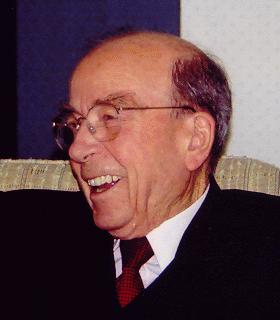 Malcolm (Mac) Urquhart was born Dec. 12, 1913 in Alberta and spent his early years on a homestead that his father had started at the turn of the century. Like other rural children, he went to a one-room school, but he was sent to Edmonton for grades 10 and 11. Unfortunately, the Depression forced him to suspend his schooling, and he spent a year working full-time on the farm. By borrowing $300, which he later paid back, Mac was then able attend Normal School, which at the time provided training for future teachers.
Malcolm (Mac) Urquhart was born Dec. 12, 1913 in Alberta and spent his early years on a homestead that his father had started at the turn of the century. Like other rural children, he went to a one-room school, but he was sent to Edmonton for grades 10 and 11. Unfortunately, the Depression forced him to suspend his schooling, and he spent a year working full-time on the farm. By borrowing $300, which he later paid back, Mac was then able attend Normal School, which at the time provided training for future teachers.
Mac taught in a one-room schoolhouse for five years, covering all the grades from 1 to 11, but not necessarily at the same time. He also completed the courses for grade 12 during the first summer (at that time one could be a teacher without finishing high school). He later finished the first year of university by correspondence and summer school. Mac then went on to the University of Alberta, where he graduated in 1940, receiving their highest honour, the Governor General's Gold Medal. Also in 1940, the University of Chicago accepted him for doctoral work in Economics. Mac completed all the exams by the spring of 1942 and spent the next year teaching at MIT. However, before he finished his dissertation, W. A. Mackintosh (later Principal of Queen's University) called him to the Department of Finance in Ottawa to help with the war effort.
After the war, Mac arranged to take up an appointment at Queen's, which was to have begun in the spring of 1946. But the numbers of servicemen attending university was so great that Mac agreed to begin in the fall of 1945. He had a very heavy load of teaching and no time to prepare. He taught steadily through to the spring of 1947. At the same time, he was helping to develop a forecasting model in Ottawa that contributed to post-war reconstruction.
Mac spent his entire academic career at Queen's. During that time, he took several sabbatical leaves. As well, there was an interlude of 15 months in 1954-55, when he was in Karachi as an advisor to the Government of Pakistan. Mac was Head of the Department of Economics from 1964 to 1968, a period when many outstanding faculty were hired and Queen's established its graduate program as the strongest in Canada. He officially retired in 1979, but he remained active in teaching and research. His last publication, a paper on the development of Ontario in the early nineteenth century, appeared in the respected William and Mary Quarterly in 1999, when he was 86.
Mac Urquhart has been among the most important figures in Canadian Economic History and Canadian Economics, generally. Historical Statistics of Canada (1965), of which he was primary editor, was the cornerstone of nearly all work in Canadian economic development for many years. It later provided the foundation for a second edition, produced by Statistics Canada. In 1993, Mac Urquhart's Gross National Product of Canada, 1870-1926, appeared. This extremely important book was the product of more than 10 years' work, involving a team of Canadian economic historians. The book and related articles have set the stage for the rewriting of the Canadian experience during this formative period.
In keeping with his stature, Mac received many awards and honours. He was elected a Fellow of the Royal Society of Canada in 1966 and was President (Academy of Humanities and Social Sciences) in 1975. In 1983, the Royal Society awarded him the Innis-Gérin Medal. Mac was also President of the Canadian Economics Association (1968-69), and he served on numerous executive boards concerned with empirical research. Among his many honours, Mac was the recipient of Killam Fellowships and was named Sir John A. MacDonald Professor of Economics at Queen's. He also received honorary degrees from Bishop's University (1985) and Queen's University (1991). In 1996, he received the Distinguished Alumni Award from the University of Alberta.
Mac's focus and undiminished interest in research and in Queen's was legendary. He was, at the same, for many years an avid fisherman, and throughout his life, an astute art collector, some of which he generously donated to the University. In 1969, Mac married Elizabeth Arrowsmith. An economist in her own right, she was an active participant in his research projects. In addition to Elizabeth, Mac is survived by Anne Arrowsmith and David Arrowsmith.
The Department is trying to raise money to establish a fund in honour of Mac Urquhart. Click here for some information about the fund.
David Chadwick Smith (1931-2000)
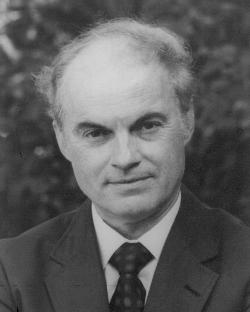 The son of Baptist missionaries, David Chadwick Smith was born in Ootacamund, in southeastern India, on August 12, 1931. His family moved back to Simcoe, Ontario when he was eight years old, where he attended public and high school. David then went to McMaster University, graduating in 1953 with an Honours Degree in Economics, and winning a scholarship to Balliol College, Oxford, where he obtained a Master's Degree. It was at McMaster that he met his wife Mary Taylor, who is now an ordained United Church minister. They married in 1955. After completing his studies at Oxford, David Smith moved to Harvard, where in 1959 he received a PhD, specializing in open-economy fiscal policy.
The son of Baptist missionaries, David Chadwick Smith was born in Ootacamund, in southeastern India, on August 12, 1931. His family moved back to Simcoe, Ontario when he was eight years old, where he attended public and high school. David then went to McMaster University, graduating in 1953 with an Honours Degree in Economics, and winning a scholarship to Balliol College, Oxford, where he obtained a Master's Degree. It was at McMaster that he met his wife Mary Taylor, who is now an ordained United Church minister. They married in 1955. After completing his studies at Oxford, David Smith moved to Harvard, where in 1959 he received a PhD, specializing in open-economy fiscal policy.
A brief stint as an Assistant Professor at Berkeley ended in July 1960, after which he began a long career at Queen's. Dr. Smith was promoted to Associate in 1963 and to Full Professor in 1966, just three years later. In 1968, he was named Head of the Department of Economics, a position he held until 1981. In 1984, he was appointed Principal and Vice-Chancellor of Queen's, serving two five-year terms. Dr. Smith turned 65 in 1996 and received the title Emeritus Principal and Professor. From July 1997 to June 1998, he served as Interim President and Vice-Chancellor of Trent University. David Smith died on May 22, 2000 at the age of 68, after a brief illness. He is survived by his wife, Mary, two children, Monica and Geoffrey, and three grandchildren.
During David Smith's years as Head of the Department of Economics at Queen's, he transformed a small but distinguished department into a major, internationally-recognized centre for economic research and teaching. The list of economists he recruited to Queen's reads like a who's who of the profession. They include no less than six presidents of the Canadian Economics Association and three Fellows of the Econometric Society. The graduate program in Economics flourished under David's guidance, becoming the largest in the country at the Ph.D. level. Many former graduate students are among the country's leading policy-makers, and there is hardly an economics department in Canada that does not include a Queen's graduate on its masthead. Those who were at Queen's during David Smith's tenure, which includes regular faculty and the many visitors that he attracted, were drawn in by the friendly and collegial atmosphere, an atmosphere that has been one of his enduring legacies.
As Principal of Queen's from 1984 to 1994, a period of increasingly severe financial constraints and social change, David Smith enhanced the university's standing as one of the premier academic institutions in Canada. Among his many achievements were the Stauffer Library, the Biosciences Complex, the National Scholars program, the International Study Centre at Herstmonceux, and the University's first women's studies program. As well, Dr. Smith was instrumental in the formation of the School of Policy Studies and, prior to becoming Principal, the John Deutsch Institute for the Study of Economic Policy. His gentle, patient style and unwaveringly high standards, which had helped transform the Economics Department, became the hallmarks of his time as Principal.
David Smith was widely sought out as an advisor by both governments and universities over his more than 40-year career. He was a member of the Ontario Economic Council for ten years, including three as Deputy Chair, Vice-Chair of the Ontario Royal Commission on Workers' Compensation, and Director of Research (Economics) for the highly influential MacDonald Royal Commission. More recently, David was senior policy advisor to the Canada Millennium Scholarship Foundation and Chair of the advisory panel on postsecondary education in Ontario. In fact, he completed the last two of three major reports on the financing of postsecondary education shortly before his death.
David Smith received many honours. In 1976, he was made a Fellow of the Royal Society of Canada, and, in 1994, he became a Member of the Order of Canada. As well, Dr. Smith was awarded honourary degrees by McMaster University, Queen's University at Belfast, the University of Western Ontario, Queen's University, and Loyalist College of Applied Arts and Technology. But it is the honour that he brought to his friends and those he worked with that will be most remembered. "He was such a wonderful human being," said Queen's benefactor Alfred Bader after hearing of David Smith's death. It was his selfless desire to serve, combined with his extraordinary ability, that led Tom Courchene to describe him as "a national treasure." Although David Smith was a private man, those who were his colleagues in the Economics Department, and later in the broader university community, felt close to him. It was this feeling of affection and admiration that allowed David to bring out the best in the people, and it may have been the true source of his success.
The Department of Economics has raised the money to establish a chair in memory of David Smith. Click here for some information about the chair.
Douglas Purvis (1950-1993)
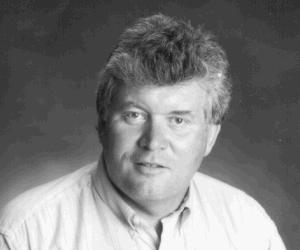 Douglas D. Purvis was a remarkable colleague and friend who died tragically in January of 1993 after an accident that occurred over the Christmas vacation. In Doug's memory, the Economics Department has established the Douglas Purvis Professorship in Economics. The first holder of this professorship, Gregor Smith, was appointed effective July, 2000.
Douglas D. Purvis was a remarkable colleague and friend who died tragically in January of 1993 after an accident that occurred over the Christmas vacation. In Doug's memory, the Economics Department has established the Douglas Purvis Professorship in Economics. The first holder of this professorship, Gregor Smith, was appointed effective July, 2000.
Doug Purvis was born in Calgary. He received his B.A. from the University of Victoria and his M.A. from the University of Western Ontario. He obtained his Ph.D. from the University of Chicago under the tutelage of two distinguished Canadian economists, Harry Johnson and Robert Mundell.
In 1971, Doug arrived at Queen's, where he quickly established himself as one of the leading scholars in the area of open-economy macroeconomics. This theme remained throughout his career. It later surfaced in his support for free trade and flexible exchange rates and, more generally, in his appreciation of the full implications of increasing globalization for a small open economy like Canada's. Doug rightly achieved an international reputation in this area, one recognition of which was his commission by the award committee for the Nobel Prize in economics to prepare the official record of James Tobin's contributions to economic science when Tobin won the 1981 Nobel Prize.
In the early 1980s, as he was evolving from theorist to policy practitioner, Doug developed a second theme, a concern for the implications of an emerging government debt and deficit burden. In a series of papers, some jointly with Neil Bruce, Doug examined the longer-term consequences of structural fiscal deficits and coined the phrase "the prudent deficit". This was not the standard case against deficits, for despite his Chicago training, Doug remained a Keynesian and an ardent advocate of the case for fiscal stabilization. What worried him was that the debt and deficit buildup during non-recessionary years would inevitably remove fiscal stabilization as a tool in more troubled times.
A more recent theme was the economics of the Canadian constitution. Doug played a substantial scholarly and advocacy role in ensuring that the issue of preserving and enhancing Canada's internal economic union had a prominent place in the constitutional debate. He was not a decentralist, but to the extent that further decentralization was inevitable in some areas, he recognized that, just as there was a pressing need for international economic co-ordination, there was also an internal need to manage the policy interdependencies between Canada's different levels of government.
Doug spent his entire professional career at Queen's and contributed substantially to its reputation for serious economic scholarship and training. The Queen's Economics Department plays a unique role in Canada. Not only has it served for years as a conduit between academia and the federal government, but it is arguably the most influential graduate department in the country. During the 1970s, Doug was pivotal in building the doctoral and masters programs. He personally supervised many students, and some of the finest macroeconomists in the country today -- in academia, government and the private sector -- were his doctoral students. Within Queen's, Doug was an institution. His counsel was actively sought on major decisions affecting the University and he assumed a significant number of administrative tasks over the years. He was Head of the Economics Department from 1986 until his death, and he was the Director of the John Deutsch Institute for the Study of Economic Policy from 1984 to 1987 and from 1990 until his death.
But it you could ask Doug, he would say that what was most important to him was teaching and his students. He loved to talk about ideas in economics and about the great debates that have engaged the profession over the years: the role of markets versus central planning, Keynesians versus Monetarists, rules versus discretion, and international policy co-ordination versus policy independence. Generations of Queen's students were exposed to the Purvis view of economic science, the economy and the world, along with substantial doses of Purvis witticisms. His students were as loyal to him as he was to them.
Doug Purvis followed in the tradition of the close Queen's/Ottawa relationship established by predecessors like Clifford Clark, W. A. Mackintosh, and John Deutsch. In the early 1980s, Doug was a member of the Finance Department's economic advisory panel, and later -- from 1985 to 1987 -- held the position of Clifford Clark visiting economist in the finance department. Later, he was actively involved in the constitutional process both within the system, as a consultant to the Federal-Provincial Relations Office and to the Joint Parliamentary Committee, and outside it as an organizer of and contributor to several academic conferences on the constitution.
In Doug's memory, the Economics Department has established the Douglas Purvis Professorship in Economics. Click here for some information about this professorship.
"Memories of Doug Purvis" written by James Tobin, May 3, 1995
Frank Knox (1896-1977)
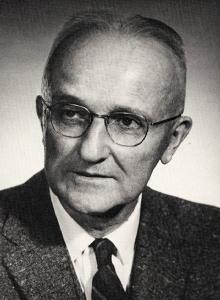 Frank Knox, who taught continuously in the Department from 1924 to 1964, was a legend in his own time. He was widely acknowledged as one of the great teachers at Queen's. For most of his career, he taught what was then the introductory course in economics, Econ 4. This was a wide-ranging course that embraced economic history and economic geography. It was quite common at the time to have such a course in the first year, leaving the introduction to micro and macro economic theory to the second year. I was fortunate, and a bit terrified, to teach Econ 4 with Knox in my first year teaching at Queen's and for part of the following year.
Frank Knox, who taught continuously in the Department from 1924 to 1964, was a legend in his own time. He was widely acknowledged as one of the great teachers at Queen's. For most of his career, he taught what was then the introductory course in economics, Econ 4. This was a wide-ranging course that embraced economic history and economic geography. It was quite common at the time to have such a course in the first year, leaving the introduction to micro and macro economic theory to the second year. I was fortunate, and a bit terrified, to teach Econ 4 with Knox in my first year teaching at Queen's and for part of the following year.
A not inconsiderable amount of Knox's time and energy went into teaching not only Econ 4 but also his third-year classes in business cycles and monetary policy. He was constantly revising these courses so that his lectures remained “fresh” to him as well as to the students. He enjoyed the give and take of the classroom. Indeed, he often set up topics that would ignite reaction from the students, especially on current policy issues. In recognition of his commitment to teaching, the AMS created the Frank Knox Teaching Awards in 1979 to encourage excellence in teaching.
In what might almost be seen as an extension to his classroom work, Knox served as editor of the Canadian Banker, the journal of the Canadian Bankers Association, from 1940 to 1957. In it, he wrote a quarterly feature entitled “The March of Events”. The latter was an extended and thoughtful essay on the current state of the Canadian economy and on monetary policy, including, during the war years, the impact of the war on these events.
Knox's work on estimating and analyzing the Canadian balance of payments for the period 1914 to 1926 has stood the test of time. It followed on the work in this area by Jacob Viner, whose period of inquiry ended in 1913. Knox's work bridged the gap between Viner's estimates and the beginning of the official balance of payments figures in 1926. His work figured prominently in the Royal Commission on Dominion-Provincial Relations, the famous Rowell-Sirois Report of the 1930's.
Between 1951 and 1956, Frank Knox was Head of the Department of Economics. It was during this time that he founded and helped finance the Institute for Economic Research. The purpose of the Institute was to bring together young scholars from across the country for the summer so that they could pursue their research at Queen's, unhindered by the day-to-day distractions back home. In the first decade of its existence, a score of books and over 160 articles were published by the IER. In 1954-55, Knox was appointed Chair of the Ontario royal commission to inquire into the economics of gold mining in Ontario.
Perhaps Knox's greatest contributions were made in the years immediately after World War II, when the University was overwhelmed by returning veterans anxious to get a university degree. Knox was himself a veteran of WWI, and hence he was able to relate to the particular problems faced by these veterans. From 1946 to 1949, he and the other instructors in the department taught “around the clock,” that is, for 12 months continuously, starting up a new term shortly after marking the papers from the previous one. During this period, Knox ran three sections of Econ 4 while still making trips to Ottawa to advise the government on postwar economic problems.
Frank Knox was born in 1895 in Orono, Ontario, where he attended public and secondary school. After graduating from Peterborough Normal School, he taught primary school for two years before enlisting in the 116 Battalion. He served overseas from 1916 to 1918. Knox entered Queen's in 1919, graduating with a degree in economics and history. He subsequently went to Harvard for a year and then completed the course work for his Ph.D. at Chicago. Knox never completed his dissertation, however.
Frank Knox retired in 1964 and died at the age of 81 in 1977. He was a kind, gentle person who loved to read and to teach. His dedication influenced several generations of students at Queen's who were lucky enough to have taken one of his classes.
Written by Alan Green
William Archibald Mackintosh (1895-1971)
Many people deserve credit for building the Queen's Economics Department into one of Canada's leading departments, and many more deserve credit for building Queen's University into one of Canada's leading institutions of higher learning. But none can take more credit on either score than W. A. Mackintosh.
Mackintosh was born in 1895. He entered Queen's in 1912, left with both a B.A. and an M.A. just four years later, then returned in 1920 with a Ph.D. from Harvard and two years of teaching experience at Brandon College.
Mackintosh became Head of the Department of Political and Economic Science in 1927, at the age of just 32.
After a seven-year wartime stint in the service of the nation, he returned to Queen's in 1946 to serve as Dean of the Faculty and then, from 1951 to 1961, as Principal.
Mackintosh wrote numerous books and articles, primarily about Canadian economic history and economic policy. His The Economic Background of Dominion-Provincial Relations, published in 1940, was the classic work on the economic history of Canada up to that time.
In 1967, Mackintosh was awarded the very first Innis-Gérin medal by the Royal Society of Canada. This is the Society's highest honour for a Social Scientist. Harry Johnson and Mac Urquhart were later winners. On the occasion of his being awarded the medal, Professor Kenneth Taylor gave this tribute. In 1971, after Mackintosh's death, Mac Urquhart gave a longer tribute.
Oscar Douglas Skelton (1878-1941)
by Marvin McInnis
O.D. Skelton was, along with Adam Shortt, the man who first brought Queen's to prominence in the field of economics. He was in many ways the most publically recognized and most influential of the collection of scholars who have become known as the "Queen's political economists". In 1908, Skelton was appointed to the Sir John A. MacDonald Chair of Political and Economic Science at Queen's. He had been selected as the replacement for Adam Shortt, the first holder of the chair, who was leaving Queen's to oversee the creation of a professional civil service in Ottawa. Skelton's appointment came only one year after his completion of doctoral studies at the University of Chicago. He was a second choice for the position, being offered it only after Queen's had been turned down by Edward (later Sir Edward) Peacock.
Skelton was an Ontarian, born 1878 at Orangeville. He completed his schooling in Cornwall, Ontario, where his father had moved to be the principal of a public school. He did his undergraduate studies at Queen's, but not in political economy. His fields were English and Classics, and he graduated as the medallist in Latin. He returned to Queen's for an additional year to further his studies of Greek. Skelton appears to have been completely unexposed to political economy at Queen's, as taught by Adam Shortt. Skelton moved on to the University of Chicago to pursue post-graduate studies in Classics.
Evidently, Skelton's interest in Classics waned, as after just one year he left Chicago and went to England in search of a career. It is interesting that in England he sat the Civil Service Examination but chose not to follow a career in the Indian Civil Service. Instead, he moved to Philadelphia and for a couple of years worked as an editor of a low profile magazine. In 1905, married and 27 years of age, he returned to the University of Chicago, this time to study for a doctorate in political economy. At Chicago, he studied under and was greatly impressed by Thorstein Veblen, one of the most original thinkers among American economists. Skelton's doctoral thesis was a tightly analytical study of socialism. A revised version of it, under the title of Socialism: A Critical Analysis, was published as a book in 1911 (after Skelton had been made full professor at Queen's). The book was widely acclaimed. As his dissertation, it had gained him the prestigious Hart, Schaffner and Marx prize (Marx the tailor, not Marx the philosopher). On the basis of this book, Skelton began his academic career with an international reputation.
In 1907, while finishing his dissertation, Skelton had returned to Queen's as a sessional lecturer. The following year he was made full professor. He turned out to be an influential and prodigious scholar. He managed a department that had a few assistants, he carried a heavy teaching load, and he published a lot. From his pen came a steady flow of articles and several books. His General Economic History of the Dominion, written to be a long chapter in the multi-volumed history Canada and its Provinces, was an incisive, and for the time remarkably quantitative, work that laid the foundation for almost all histories of Canadian economic development that appeared over the next 80 or 90 years. His publications were strongly economic, although they were frequently presented in the guise of biography. He wrote books on the railway builders, Sir Wilfrid Laurier, and the Life and Times of Alexander Tilloch Galt. His articles dealt with topics that ranged from reciprocal trade with the United States to industrial relations and the rise of unions. It is interesting that while much of Skelton's published work concerns economics, his teaching at Queen's primarily involved political science. Skelton engaged assistant professors to teach the economics courses, notably W.W. Swanson, who went on to be the head of economics at the University of Saskatchewan, and Humphrey Michell, who later headed economics at McMaster.
Skelton played a dynamic and forceful role at Queen's, and in 1919 he became Dean of Arts. At about the same time, he was instrumental in starting up undergraduate education in commerce. It is interesting to note that Skelton's preference evidently would have been to introduce commerce as a graduate, professional program along Harvard lines. In 1924, Skelton was drawn away from Queen's to Ottawa to be the first Undersecretary of State for External Affairs. The tasks he undertook there were to articulate a distinctively Canadian foreign policy and to establish a professional foreign service. On the latter, he did so well that for many years Canada was thought internationally to have an exceptionally able foreign service. For at least three decades after Skelton's arrival in Ottawa the foreign service attracted the cream of Canada's university graduates. Besides a foreign service of outstanding quality, and a remarkable body of published scholarship, Skelton's other legacy to the country was to educate and inspire another generation of Queen's students who went on to notable accomplishments. These included W. Clifford Clark, Bryce Stewart, and W. A. Mackintosh. In 1928, several prominent trustees and alumni plumped hard to have Skelton return to Queen's as principal. Alas, it was not to be.